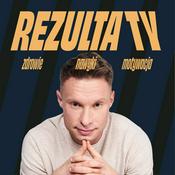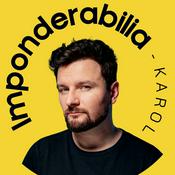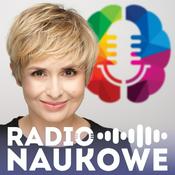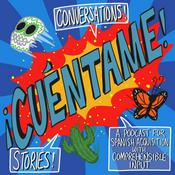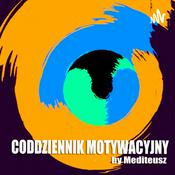Feeling Good Podcast | TEAM-CBT - The New Mood Therapy
David Burns, MD
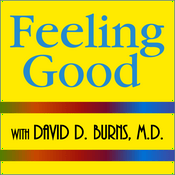
Najnowszy odcinek
509 odcinków
- Sexting, Bullying, and Social Media--
A Compassionate, Practical Guide for Parents of Teens
Today, we welcome back one of our favorite guests, Taylor Chesney, director of the Feeling Good Institute in New York City. Taylor specializes in TEAM-CBT with children and adolescents and brings a rare combination of clinical expertise and real-life wisdom as the mother of four.
Parents everywhere are worried about social media, sexting, porn, bullying, and the fear that their kids are doing "who knows what" behind closed doors. In this episode, Taylor offers a refreshing and deeply practical message: the solution isn't better apps, stricter rules, or surveillance—it's connection.
Why Blaming Technology Misses the Point
Teen brains are still developing. They're impulsive, thrill-seeking, and wired for belonging and validation. Give teens instant access to peers and social media, and mistakes are inevitable.
Taylor emphasizes that technology itself isn't good or bad—it amplifies what's already happening in a teen's emotional world. The real question isn't how to eliminate technology, but how parents can guide kids in using it safely and thoughtfully.
The Real Protective Factor: Communication
Parents often ask, "What app should I install?" or "How do I stop this?"
Taylor suggests these questions lead to dead ends.
What truly protects teens is a relationship where they feel:
understood rather than judged
supported rather than interrogated
safe coming to parents after a mistake
As Taylor explains, for most teens it's not if they'll face a difficult online situation—it's when. The goal is to make sure they come to you when it happens.
How to Talk So Teens Will Open Up
Using the Five Secrets of Effective Communication, especially the Disarming Technique, parents can shift from policing to coaching.
Instead of:
"Why were you on your phone?"
Try:
"Help me understand what was going on for you."
This approach reduces secrecy and increases trust.
Porn, Sexting, and Shame
Discovering porn or sexting can trigger panic and anger in parents—but shaming almost always backfires.
Taylor suggests responding with curiosity and empathy:
"What was that like for you?"
"What do you understand about the difference between porn and real intimacy?"
Sexting often begins innocently—seeking connection, validation, or closeness—but once an image is sent, control is lost. Open conversations help teens think ahead without feeling judged or controlled.
Parents can also teach teens simple, self-respecting responses like:
"I care about you, but I don't need to send that to prove it."
Bullying and Online Drama
Online bullying mirrors real-life dynamics—but faster, more public, and more permanent.
Taylor shares concrete skills teens can use:
Pause before responding
Don't engage when emotions are high
Exit or mute toxic chats
Involve an adult early
Helpful phrases teens can practice include:
"This chat is getting mean—I'm stepping out."
"I'm not comfortable with this."
"Let's take a break."
The Big Takeaway
Mistakes—by teens and parents—are inevitable. The real danger isn't errors; it's secrecy.
When kids know they can come to their parents without fear of shame or punishment, they make better decisions and recover more quickly when things go wrong.
As Taylor puts it: "The kids with the best relationships with their parents make the best decisions."
Thanks for listening, and heartfelt thanks to Taylor for this wise, compassionate, and deeply reassuring conversation.
— David, Rhonda, and Taylor - Meet Richard Lam--
Master TEAM CBT Teacher and Therapist!
Today we chat with Richard Lam. Richard is a licensed Marriage and Family Therapist in private practice in Mountain View, California. He is a graduate of Palo Alto University. He currently provides short-term therapy for anxiety, OCD, habits/addictions, depression, and relationship concerns using Cognitive Behavioral Therapy. Richard also trains other therapists in David Burn's model of CBT called TEAM-CBT Therapy. He is a certified Level 5 Master Therapist and Trainer in TEAM-CBT Therapy.
And today, Richard has gifts for you! They are fantastic! See below!
I began by asking Richard how he got interested in teaching. When he was first learning, he was tutored by Dr. Angela Krumm, an advanced TEAM CBT practitioner and one of the three founders of the Feeling Good Institute. He was loving the training, but one day she said, "That's all I can teach you. Now you have to start teaching!"
And that started the wagon rolling down the hill. Richard is particularly interested in developing free self-help tools for patients, but also runs a special training class for TEAM CBT therapists who themselves want to become trainers. It meets in-person at the FGI office on Mondays from 12 to 2 PM. If interested, contact Richard (contact information is at bottom of show notes.)
Richard is one of our most articulate TEAM CBT teachers, and is renown for some of his live demonstrations of specific techniques, like Forced Empathy. He has created a series of multi-page interactive teaching guides for a variety of techniques, so you can learn exactly how to do the Double Standard Technique, or the Externalization of Voices in a simple, clear, step-ty-step manner. Here are links to several examples. Check them out and feel free to share them with your patients if you are a TEAM therapist.
These links are all kick ass! Check them out and do the exercises. You'll be glad you did!
Link to Double Standard Technique
Link to Externalization of Voices
Link to Externalization of Resistance
Link to I Feel Statements, Part 1
Link to I Feel Statements, Part 2
Link to Feared Fantasy
Link to Forced Empathy
Link to Forced Empathy Handout
Link to Future Projection, for Habits
Link to Paradoxical Ultimatum
Richard tells us that mental health works a lot like physical health. When we don't regularly care for our bodies, things start to deteriorate and the same is true for our minds. These tools give you a way to keep nurturing your mental health so you can maintain a strong, healthy mind.
Richard and I also discussed Acceptance--one of the most difficult concepts for patients and therapists alike to "get." I was delighted to learn he has a five-point plan to help people grasp this concept.
Richard's Five Steps to Acceptance
1. The Win-Win Principle: How can I see this loss as a win?
In high school, Richard had a patient whose heart was set on making the varsity basketball team, and was heartbroken when he only made the junior varsity team. But then he got to thinking that it would be fun to be the start on the JV team because his best friend is also going to be in JV. He relaxed and started to enjoy his practices with the team.
And
He was promptly promoted to the varsity team!
2. Remember the butterfly effect!
Richard described getting angry and frustrated when he was late for an important appointment, and the car in front of him was moving slowly and caused a delay at a red light. His first impulse was to get angry and insist it SHOULDN'T have happened. But then, in reflection, he thought: "Wait a minute. This delay will change the entire trajectory of the rest of my life. And who knows, this could have save my life from some future tragedy if the trajectory of my life had been on time."
3, Growth mindset
I have always thought of this important idea in simple terms. There is really no such "thing," from a Buddhist perspective, as "success" or "failure." These are just experiences. But often things do not turn out as one hoped. Instead of caving in, giving up, or feeling depressed or frustrated, although those are perfectly reasonable human experiences, you can accept your failure and view it as an opportunity for growth and learning. Our 9 month old grandson has reminded me that when we are learning to walk, we "fail" constantly, falling over, etc. But these are steps in learning that eventually culminates in the ability to walk--which is a miracle!
4. The spiritual view
Acceptance can be thought of as letting go of judgement. Richard treated a woman who was angry at God because she could not have children, and she had always dreamed of having a big family. But from a medical perspective, her anger and constant agitation were actually the main reason she couldn't get pregnant. Shen she began working on reducing her anger using TEAM CBT, she was able to relax, and accept her fate with greater in peace.
And then she suddenly got pregnant!
I, David, have seen this on many occasions. Check out Podcast #7f9, one of our most popular podcasts ever, with Daisy: "What is the Secret of a Meaningful Life?" Or Podcasts 268 - 269, featuring live work with our beloved Dr. Carly Zankman. Or #349: "What if my family rejects me?" All of these podcasts were amazing, and resulted in rapid pregnancies!
5. Empathy vs anger
Richard described getting VERY angry when someone broke into his car and stole a bunch of stuff, but then asked himself why they did it. He realized that they were probably struggling and desperate for money--for drugs, for food, for family. Understanding someone's story can help lower the anger that you feel.
Richard, Rhonda, and David - Let's face it. We ALL procrastinate. Attempts to "help" nearly always backfire.
Dr. David Burns gets it. Procrastinators don't want help — they want something that actually works. In his upcoming free webinar on February 25, Dr. Burns introduces his paradoxical approach and ten powerful TEAM CBT tools that deliver results.
Sign up now at FeelingGoodWebinar.com.
Everyone is welcome! Therapists can purchase two CE credits if they attend the live event.
See you there! - (featured photo shows David, his wife Yvonne, and son, Joey, when young)
Meet the Incredible Dr. David Antonuccio, Part 2 of 2
Shrink, Songwriter, and Hero
Today we continue our conversation with my dear friend and esteemed colleague, Dr. David Antonuccio, a true scholar, clinician, researcher, musician, and champion of scientific transparency.
The Nicotine Patch Study
David revisited his landmark research on the nicotine patch, a costly trial involving roughly 600 participants who were randomly assigned to receive either a real nicotine patch or a sham patch. The goals were to assess safety and efficacy.
The safety data looked reassuring. However, the efficacy findings were unexpected: the placebo patch worked just as well as the active nicotine patch in reducing smoking. The sponsoring company published the safety data but refused to publish—and refused David access to—the efficacy findings, which showed no advantage for the nicotine patch. You can check the link to the NEJM article here.
David writes: "Notice the 48 week follow-up data were excluded in this paper despite the fact that they were available. That really annoyed me. I also now believe that the original version of the paper was ghostwritten and ghost analyzed by the industry folks.in other words. I'm not sure that the authors ever had access to the "raw" data before they were analyzed."
This was important because there was a decrease in smoking DURING the study among those wearing the patch, and getting their "fix" of nicotine that way. . . but what happened AFTER the study?
David writes: "Here is the link to the follow up paper that emphasized efficacy and included the 48 week follow-up data."
Notice that this paper was not published until three years later, when the Nicotine Patch had already been heavily advertised and sold on the market. This early experience in his career revealed the tension between marketing interests which focus on sales, and scientific interests which focus on truth and transparency—a daunting and frustrating pattern that would emerge again and again in his career.
Expert Testimony in a Tragic Criminal Case
David then described expert testimony he provided in a deeply troubling legal case. A 72-year-old woman, happily married for 50 years and a respected kindergarten teacher, had recently been prescribed Paxil, along with Ambien and Ativan.
She abruptly, and without memory, woke up in the middle of the night and stabbed her husband 200 times and was subsequently arrested for homicide.
There was no jury trial; instead, a plea bargain was used to determine sentencing. Dr. David Antonuccio was called as an expert witness in her defense. He described Dr. David Healy's research documenting a significant increase in both suicidal and violent urges among some patients taking SSRIs, especially Paxil. He argued that this woman's bizarre behavior was consistent with a drug-induced dissociative or fugue state.
Based in part on David's testimony, the charge was reduced to manslaughter, and the judge sentenced her to time served, allowing her to return home to her children.
For more on this topic:
David Healy's Research on SSRIs and Homicidal Urge
SSRIs Called on Carpet Over Violence Claims
Black Box Warnings and Patient Rights
David also emphasized the urgent need to revise Black Box warnings to reflect the full range of possible toxic or dissociative effects of psychiatric medications—not just suicidality. He has long advocated for a Patient Bill of Rights to ensure scientific transparency and informed consent.
A Surprising Conversation with Dr. John Nash
David shared a fascinating personal story about calling Dr. John Nash, whose life inspired the award-winning film A Beautiful Mind. In the movie, Nash's recovery from schizophrenia is portrayed as medication-dependent. However, Nash told David directly that this was not true—the medication narrative was added to the script, possibly out of concern that portraying his recovery without meds might discourage viewers from taking prescribed medications.
Nash said: "What saved me was the support of family and friends."
Music, Truth, and "Buzz"
David is also a talented songwriter. One of his songs, "Buzz," addresses the emotional and ethical issues surrounding electroconvulsive therapy (ECT). The inspiration came from a man in the Midwest who was legally ordered to undergo ECT against his will. A widespread public outcry ultimately convinced the judge to rescind the order.
Forgiveness and "In the Air Tonight"
One of David's favorite songs is Phil Collins' "In the Air Tonight," which he sees as a deeply spiritual musical meditation on forgiveness—a theme David considers one of the most powerful psychological forces we possess. David explains that the Phil Collin's song is about forgiveness, but more indirectly and specifically about the songwriter's inability to forgive.
And yes—David sang it live for us on the podcast!
You might be interested in this chapter that David coauthored on
the science of forgiveness
Thank you for joining us today. And heartfelt thanks to you, Dr. David Antonuccio, for your gifts of enlightened skepticism, ethical courage, incisive scientific thinking, and soulful musical talent.
David, Rhonda, and David
Więcej Edukacja podcastów
Trendy w podcaście Edukacja
O Feeling Good Podcast | TEAM-CBT - The New Mood Therapy
This podcast features David D. Burns MD, author of "Feeling Good, The New Mood Therapy," describing powerful new techniques to overcome depression and anxiety and develop greater joy and self-esteem. For therapists and the general public alike!
Strona internetowa podcastuSłuchaj Feeling Good Podcast | TEAM-CBT - The New Mood Therapy, Przemek Górczyk Podcast i wielu innych podcastów z całego świata dzięki aplikacji radio.pl

Uzyskaj bezpłatną aplikację radio.pl
- Stacje i podcasty do zakładek
- Strumieniuj przez Wi-Fi lub Bluetooth
- Obsługuje Carplay & Android Auto
- Jeszcze więcej funkcjonalności
Uzyskaj bezpłatną aplikację radio.pl
- Stacje i podcasty do zakładek
- Strumieniuj przez Wi-Fi lub Bluetooth
- Obsługuje Carplay & Android Auto
- Jeszcze więcej funkcjonalności


Feeling Good Podcast | TEAM-CBT - The New Mood Therapy
Zeskanuj kod,
pobierz aplikację,
zacznij słuchać.
pobierz aplikację,
zacznij słuchać.


